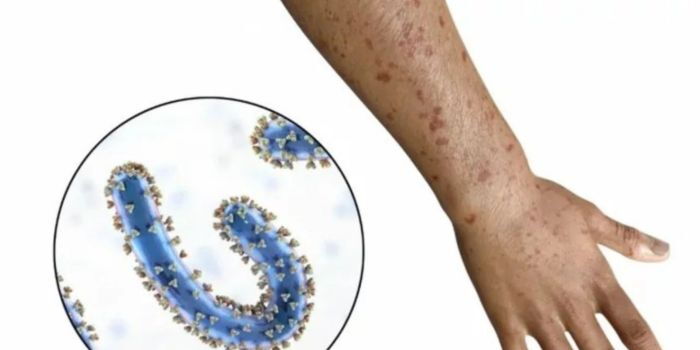The Ministry of Health on Tuesday, January 21, for the first time issued a statement on the Marburg Virus outbreak witnessed in Tanzania issuing a health advisory to Kenyans as it aims to curb any spread to Kenya.
In a statement, the ministry issued eight actions to prevent a potential outbreak of Marburg virus diseases in the country confirming that no case had been recorded locally so far.
First, the ministry advised that persons who are showing symptoms of Marburg Virus Disease are taken immediately to a designated treatment centre where they will receive care isolated from others. This is with the aim of protecting individuals, their families and the overall community.
Secondly, the ministry cautioned against the treatment of patients at home. “If you or someone in your family or community has symptoms of Marburg Virus Disease, seek immediate medical assistance from local health professionals who can provide patients with safe and appropriate care,” the ministry cautioned.
Health CS Deborah Barasa
Photo
Ministry of Health
Further, the government through the ministry assured that patients would be provided with whatever help is needed for recovery by health professionals and support personnel. .
The health ministry also emphasised the importance of seeking care early when one contracts the disease. It noted that this would improve one’s chances of survival and limit the risk that you will transmit the disease to their loved ones.
The ministry also advised against touching or washing the body of anyone who has died with symptoms of Marburg virus disease. “People who have died from Marburg Virus Disease should receive safe and dignified burial,” the ministry stated.
The sixth advisory dictated that burial teams be allowed to take a swab from the mouth of the deceased to test for Marburg virus disease. If the test result is positive, then the team would ensure that the deceased is safely buried, while allowing one to mourn in an acceptable and dignified way. Rituals that would involve touching, washing or kissing the body would be prohibited.
The seventh directive instructed Kenyans to follow and apply the advice given by community leaders and public health authorities to protect themselves and their loved ones from the disease.
Lastly, the ministry informed that people who had been in close contact with MVD patients would be identified as contacts and would be monitored for 21 days. This would allow for early detection of the disease and early access to care, which improves their chance of survival and reduces the risk of transmission to others.
Notably, the ministry reported that there is no reported case of the deadly virus in the country. The ministry sought to allay any fears of any outbreak in the country assuring Kenyans of its resolve to enhance preparedness to combat any spread of the virus.
“Preparedness is being enhanced in the country through the development of Marburg Virus Disease preparedness and response plan, as well as conducting a readiness assessment to assess the capacity of the country to respond to a similar outbreak. Surveillance has also been enhanced countrywide in all counties and points of entry,” the ministry stated.
The Marburg virus disease is caused by the Marburg virus which can be transmitted by an infected person to other people. The disease can also be transmitted by fruit bats to people who have had prolonged exposure in caves or mines inhabited by fruit bat colonies. It is a serious disease that often leads to death.
The virus often spreads to close contacts, such as family members, caregivers or healthcare workers who are not wearing proper personal protective equipment (PPES) while caring for someone ill with Marburg virus disease or while handling a dead body of someone who was infected with the disease.
Signs and symptoms of MVD begin abruptly, with high fever, chills, severe headache and extreme tiredness. Muscle aches and pains are also common symptoms. Symptoms become increasingly severe and can include nausea, chest pain, sore throat, stomach pain, as well as vomiting and diarrhea that may contain blood. There may also be bleeding from body orifices.
Kenyans have been urged to stay on high alert after the outbreak was confirmed in the Northwestern region of Kagera in Tanzania on Monday, January 20.
Medical Services PS Harry Kimutai(left) with Health Cabinet Secretary Deborah Mulongo when the latter assumed office.
Ministry of Health


